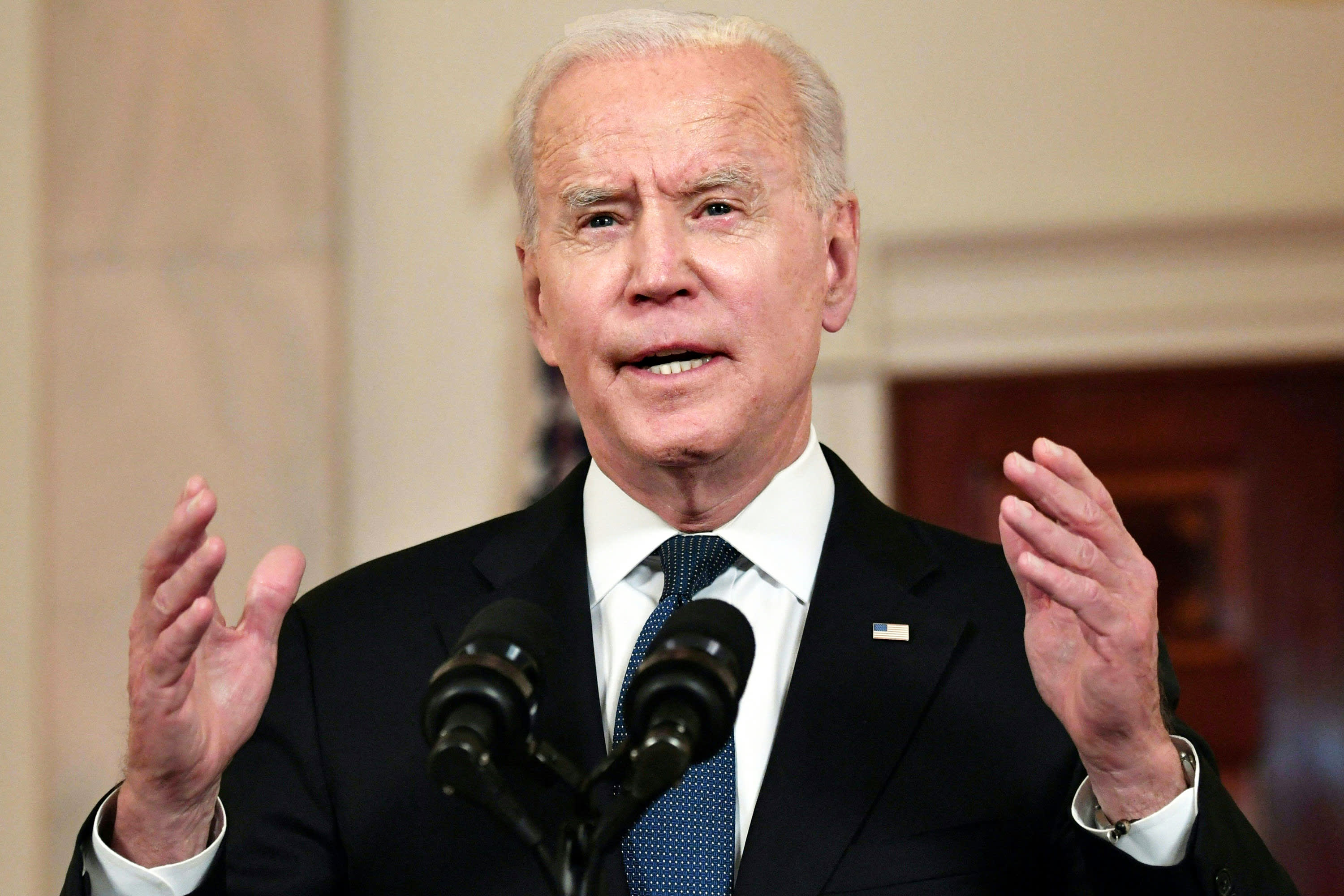President Joe Biden wants Republicans to increase the spending in their infrastructure plan ahead of Friday talks that will shape whether Washington can pass a bipartisan bill to upgrade transportation, broadband and water systems.
During a Wednesday meeting, Biden told GOP Sen. Shelley Moore Capito he wants the plan to include $1 trillion in new spending — or above the baseline set under existing policy, NBC News reported. While Republicans most recently sent Biden a $928 billion counteroffer, it included only about $250 billion in new money.
Biden offered Republicans possible alternatives to his proposal to hike the corporate tax rate to at least 25%. The GOP opposes any changes to its 2017 tax law, which slashed the corporate tax to 21% from 35%.
He proposed relying on a 15% minimum tax designed to curb underpayment by profitable American companies, a source told CNBC. Despite the offer, Biden is not scrapping his ongoing plans to hike the corporate rate or raise taxes on wealthy individuals.
The White House later hinted at the political calculus behind the latest moves. Opposing a minimum tax rate would mean “having the view that these 50 corporations who don’t pay taxes shouldn’t pay any taxes at all,” press secretary Jen Psaki said Thursday.
Psaki also said Biden would not support user fees as a way to help pay for his infrastructure plans, which the administration believes would amount to a tax increase on people making under $400,000 a year.
Capito, a West Virginia Republican, shared the details of the meeting with the five other Republican senators on her infrastructure negotiating team, NBC reported. The GOP expects to send Biden another counteroffer as soon as Friday, the day Biden and Capito plan to speak again.
A Capito spokeswoman did not immediately respond to a request to comment on Biden’s proposed alternative to hiking the corporate tax rate.
Biden’s priorities outlined Wednesday underscore the hurdles negotiators face on the way to a bipartisan deal. Despite weeks of maneuvering, the parties have not agreed on what should go into an infrastructure bill or how to fund the plan.
The White House has signaled it could move on and try to pass legislation with only Democratic votes if the talks do not make progress by next week. Energy Secretary Jennifer Granholm on Wednesday told CNBC that “there is a time limit” on negotiations.
However, neither Democrats nor Republicans have showed they want to be the ones to walk away from the talks.
Senate Minority Leader Mitch McConnell, R-Ky., does not “know whether we’re going to reach an agreement or not” but hopes “we get an outcome,” he told reporters in his home state on Thursday. He said he expects Democrats to try to pass a bill on their own if they do not strike a deal with the GOP, but “that will be extremely controversial because of the taxes they want to make a part of it.”
“My advice to the president and the administration: let’s reach an agreement on infrastructure that’s smaller but still significant, and fully paid for,” he said.
The GOP’s $928 billion plan came in at about half of Biden’s latest $1.7 trillion proposal. Democrats want a bill to go beyond past notions of infrastructure, but Republicans have resisted including policies beyond transportation, broadband and utilities.
The White House package includes major investments in care for elderly and disabled Americans, housing, schools, electric vehicles and clean energy. Democrats have stressed the need to boost the economy long term by making it easier for workers to find care for dependent family members and preparing buildings and critical infrastructure for the effects of climate change.
Republicans aim to limit a plan to investments in areas including roads, bridges, airports, ports, waterways, broadband and water systems.
Agreeing on how to offset the spending could prove as thorny as deciding what to put in the bill. Republicans have said they will not agree to a corporate tax hike. Biden wants to raise the rate to at least 25%.
The White House opposes a GOP proposal to repurpose coronavirus relief money passed by Democrats earlier this year.
— CNBC’s Ylan Mui contributed to this report
